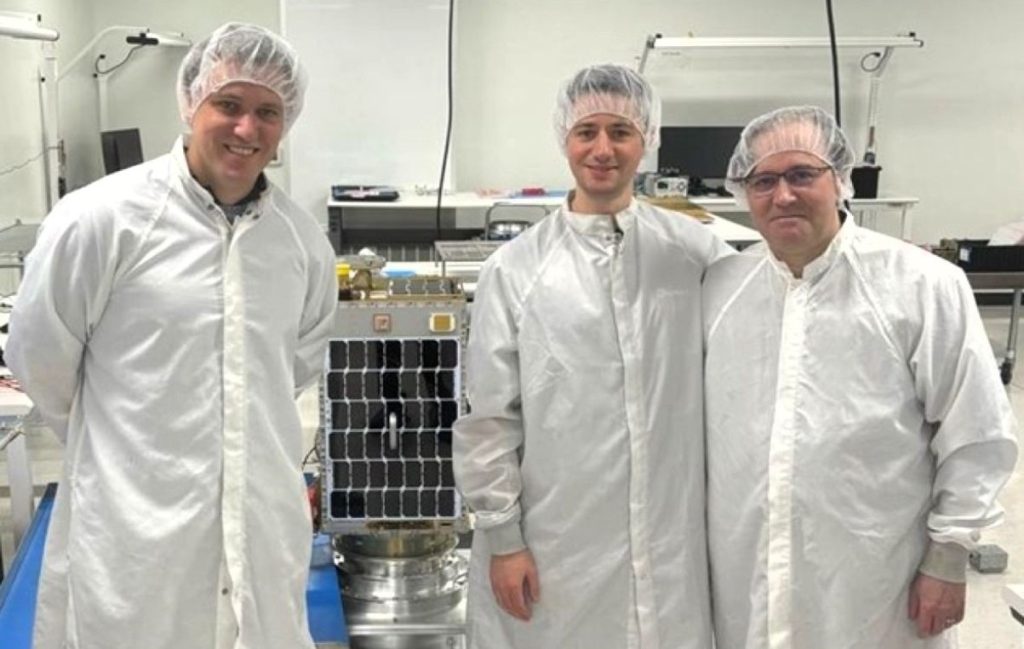Summarize this content to 2000 words in 6 paragraphs
Lumen Orbit’s co-founders are, from left, CEO Philip Johnston, chief technology officer Ezra Feilden and chief engineer Adi Oltean. (Lumen Orbit Photo)
Bellevue, Wash.-based Lumen Orbit, a startup founded earlier this year, raised $11 million to fuel plans to put data centers in space that power technology and AI services back down on Earth.
The seed funding, which comes shortly after a $2.4 million pre-seed investment round announced in March, reflects high investor interest in Lumen. TechCrunch reported that the company heard from more than 200 venture capitalists, and raised its latest round at a $40 million valuation.
NFX led the round, which included participation from Seattle-area venture firm FUSE, as well as Soma Capital and scout funds from Andreessen Horowitz and Sequoia.
Lumen graduated from Y Combinator’s summer cohort this year and plans to launch a full-scale prototype in 2025.
Lumen CEO and co-founder Philip Johnston is a former associate at McKinsey & Co. who also co-founded an e-commerce venture called Opontia.
Lumen’s other co-founders are chief technology officer Ezra Feilden, whose resume includes engineering experience at Oxford Space Systems and Airbus Defense and Space; and chief engineer Adi Oltean, who worked as a principal software engineer at SpaceX’s Starlink facility in Redmond, Wash.
The company is riding tailwinds from the AI boom, which is driving up demand for data center capacity.
“We started Lumen with the mission of launching a constellation of orbital data centers for in-space edge processing,” Oltean explained to GeekWire earlier this year. “Essentially, other satellites will send our constellation the raw data they collect. Using our on-board GPUs, we will run AI models of their choosing to extract insights, which we will then downlink for them. This will save bandwidth downlinking large amounts of raw data and associated cost and latency.”
Other companies aiming to put data centers in orbit include ASCEND, a project funded by the European Union that has been looking into the feasibility of creating a fleet of space-based data centers, with Thales Alenia Space taking a leading role. And Texas-based Axiom Space says it’s partnering with Kepler Space and Skyloom to set up an orbital data center on Axiom’s first space module, which is due for launch in the 2026-2027 time frame.












